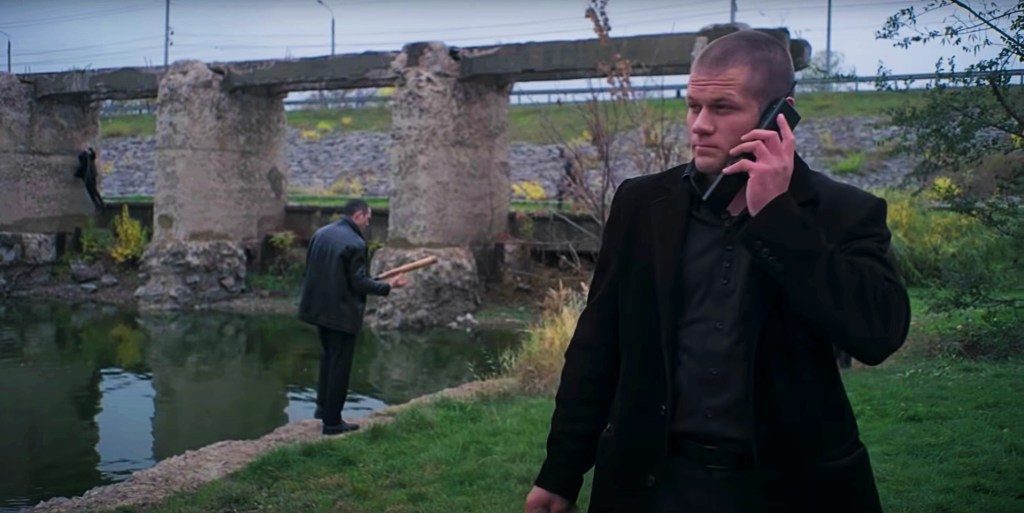The Guardian’s video of the incident
This post originally appeared on VICE UK.
Videos by VICE
Once again, football is unfortunately grabbing the headlines because of racist assholes, rather than fun things like a tiny club knocking a bunch of Premier League prima donnas out of the FA cup, or a pundit dressed like Peter Stringfellow. The Guardian has published a video of some Chelsea fans stopping a black man from getting on the Metro in Paris and chanting: “We’re racist, we’re racist, and that’s the way we like it.”
Of course, most Chelsea fans will be as nauseated and horrified by the video as everyone else is, but the club do have an image problem whether they like it or not. In fact, the club has attracted racists from across the country for years.
Back in the 1980s, when hooliganism was a bigger problem, Chelsea had one of the most notorious firms in the shape of the “Headhunters.” As fans around the country received banning orders from their local clubs, many looked elsewhere to get their kicks. Once they were refused entry at their nearest ground, or became too well known to smaller communities and local police forces, people sought out the clubs with the most famous hooligans for somewhere to belong. Many began to follow teams solely because of their visible racist and hooligan contingent—particularly Chelsea, Rangers, Millwall, and Leeds. English football’s racist hooligan diaspora was born.
In the North West, fans that followed Manchester United and Liverpool FC or smaller local teams Wigan Athletic, Oldham Athletic, and Stockport County were aware of seeing the odd Chelsea shirt knocking about their grounds or on the high street. The same goes for seeing Rangers shirts—another club with fans with far-right connections.
In reaction to the news of the racist incident in Paris, former footballer and now radio host Stan Collymore tweeted: “As I said a couple of weeks ago, Rangers and Chelsea, aka ‘The Blues Brothers’, made for each other. Quelle surprise,” signing off with “#NF #BNP #C18.” Those hashtags refer to the National Front (NF), British National Party (BNP), and Combat 18 (C18)—a neo-Nazi terror group.
Nowadays, if you see a Chelsea shirt in a northern town, there’s a chance it’s being worn by a glory hunter rather than a Headhunter. But it might not be—there’s still a slight sense of dread in the North West when you see a Chelsea or Rangers shirt.
I’ve encountered northern Chelsea and Rangers supporters who were born and raised in the middle of the Pennines. They have had no family links to these clubs. They have boasted of hooligan activity, as well as being proud BNP supporters. They’ll argue with you in pubs about the Burka, or immigration, or the Irish celebrating St. Patrick’s Day, or whatever normal part of modern British life is pissing them off on that day. Disaffected by the resistance—or what they perceive to be apathy—that they face locally, they seek it out with fans of clubs who are known for far-right views. Wearing a Chelsea kit while walking around a small town in the North West can be your business card, being handed out to any like-minded racists you might encounter.

Chelsea fans in Scotland fusing the club’s crest with a loyalist flag. There is a long history of association between unionism and the far-right. Photo via @Chelsea_RFC Twitter
Far-right wingers outside London admire teams like Chelsea, because of their racist history, not in spite of it. As former Chelsea chairman, Ken Bates, has said, “The National Front sold their magazines in the Fulham Road and used to wait in the pub opposite to learn the team selection. If they [the Chelsea players] were all white, the National Fronters used to walk across and buy their tickets.” After Chelsea signed their first black player, when he scored, the fans would throw bananas at him and claim the score was still 0-0, because it was a N-word on the score sheet. These high profile incidents are well remembered and provide a grim draw for some people. The firms won’t care too much, with the “no-one likes us, we don’t care” attitude holding sway.
If there’s anything to take from this, it’s that people feel the need to latch on to far-away clubs precisely because they’re so isolated. A few years ago I was there as Bolton Wanderers and Blackburn Rovers fans joined in unison to mock three supporters seen in EDL hoodies, chanting “superior race, you’re having a laugh.”
None of this is to say racist Chelsea fans are the majority—far from it. But the fact of the matter is, Chelsea—regardless of any efforts they have made—are still associated with racist fans, thanks to the influx of hooligans, sometimes from nowhere near West London.
Follow Mof Gimmers on Twitter.



